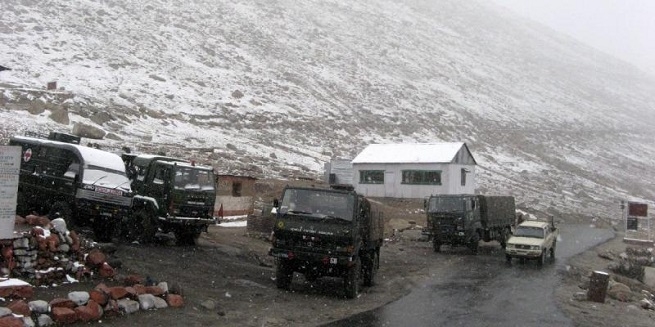paradigm shift
| Date :10-Jul-2020 |

THE developments in the last few days of India-China stand-off in eastern Ladakh indicate a paradigm shift that could not even be imagined a few years ago. No matter the aggressive stance taken by the Chinese army, the Indian response was a fine example of a fantastic assertion of a morally correct nationalistic position that brooked no nonsense. As a result, slowly but increasingly, the Chinese troops started backing out, giving a clear indication that the Indian assertiveness was highly effective. Such an assertion on part of India could not be imagined earlier.
Of course, at the tri-junction of India-Bhutan-China border at Doka La, India had demonstrated similar courage in 2017 forcing the Chinese back out then as well. Thus, the current development, in a way, is a repeat of what happened three years ago. That time also, India has massed up its troops in an eyeball-to-eyeball stand-off for 73 long days.
That time, as now, a fine combination of military audacity and diplomatic amiability made the difference -- in India’s favour. The current stand-off also is showing similar signs of a changed metaphor. Of course, way back in 1962, the Indian troops would take 16 to 18 days to reach the Line of actual Control (LAC). Now, they move to even the farthest friction point in just one single day, thanks to the Indian initiative to create a suitable infrastructure in those terribly undulating terrains.
That was the reason why the Indian men and machines and war merchandise reached the most advanced positions almost in real time, shocking the Chinese out of their wits, and making them anxious and vulnerable. That was also the reason why Beijing was upset about India’s sustained efforts in the past 5-6 years to hasten the infrastructure projects in border areas, no matter the mind-boggling cost. Beijing tried all its tricks, including angry protests that almost sounded like war cries. And when that did not seem to affect the progress of India’s infrastructure projects in those forward areas, Beijing decided to push its troops to intimidate India.
That was where the Chinese made a terrible miscalculation. They has really not imagined that India is a changed proposition in 2020 as against what it used to be in 1962. In 1962 also, the Chinese had had a taste of Indian bravery and courage in the face of terrible odds when the soldiers held back the invading Chinese for days with just a handful of men and only scant ammunition. Without logistical support and political will to fight back, the Indian soldiers refused to grant the Chinese an easy victory. In fact, the evidence that emerged subsequently showed how India had to face the defeat because of the weak-kneed leadership that entered easy compromises on national honour.
The current paradigm shift we are talking about shows that all those old details no longer apply to India of today. That India’s military prowess has grown tremendously is only a half of the full truth. The other and more important half is the attitudinal change in India’s leadership. The soldiers were always brave beyond words, but the leaders lacked the right will and courage. That lacuna no longer exists now, making a great difference. Of course, the Chinese had only a scant idea of this paradigm shift in India. They just failed to take note of the change India had brought about in its approach to matters of utmost national interest. As a result, the red-faced (pun not intended) Chinese had to accept a docile backing out like they had not done in decades.
It must be noted with a sense of pride again and again that one of the factors that caused a softening of the Chinese stand was of the terrific courage shown by Indian Army’s Bihar Regiment in the fierce scuffle in Galwan Valley on June 15-16. Yes, twenty Indians were martyred, but not before they had packed off to hell double the number of Chinese soldiers with broken necks and collar bones and spines and knees no matter that they were outnumbered 1 to 5. All these factors indicated a great paradigm shift that the Chinese failed to notice in advance.